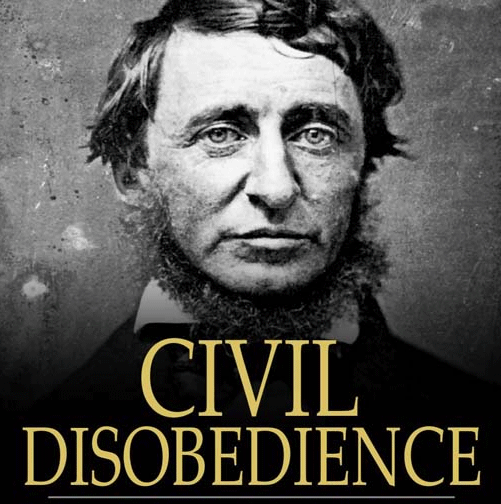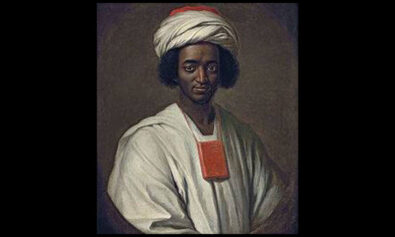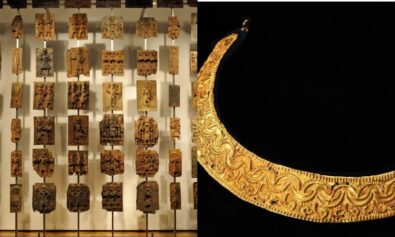‘Civil Disobedience’ by Henry David Thoreau
An essay written by American transcendentalist Henry David Thoreau, “Civil Disobedience” was published in 1849. In it, Thoreau argues that individuals should not permit the government to overrule their consciences, and that they should avoid allowing the government to force them to promote injustice. Thoreau was reportedly motivated to write this essay because of his disgust with slavery and the Mexican-American War.
Dr. Martin Luther King Jr. was very intrigued by this essay. In his autobiography, he wrote, “During my student days I read Henry David Thoreau’s essay On Civil Disobedience for the first time. Here, in this courageous New Englander’s refusal to pay his taxes and his choice of jail rather than support a war that would spread slavery’s territory into Mexico, I made my first contact with the theory of nonviolent resistance. Fascinated by the idea of refusing to cooperate with an evil system, I was so deeply moved that I reread the work several times.”
‘The Social Contract’ by Jean-Jacques Rousseau
Published in 1762, “The Social Contract” aimed to determine the best way to establish a political community in the face of the problems of society.
“The Social Contract” helped inspire political reforms all over Europe. In his suggested contract, Rousseau proposed that everyone would be free because they would all give up the same amount of rights and the same responsibilities would be imposed on everyone. Rousseau argued that slavery was illogical.
In chapter 6, Rousseau writes “finding a form of association which will defend the person and goods of each member with the collective force of all, and under which each person, while uniting himself with the others, obeys no one but himself, and remains as free as before.” This sentiment is very reminiscent of a portion of King’s “Letter from Birmingham Jail.”
“We are all caught in an inescapable network of mutuality, tied into a single garment of destiny, whatever affects one directly, affects all indirectly,” King wrote.




